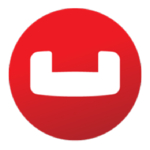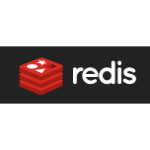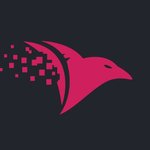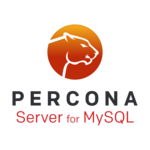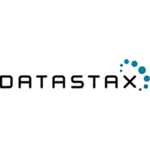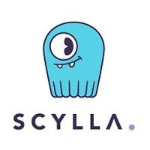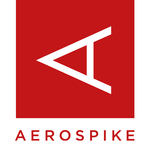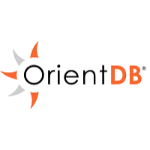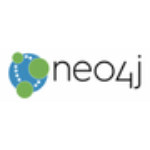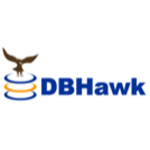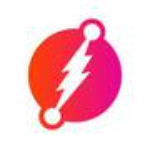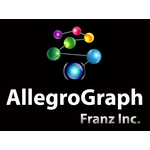TechnologyCounter provides genuine, unbiased real user reviews to help buyers make informed decisions. We may earn a referral fee when you purchase through our links, at no extra cost to you.
List of 15 Best NoSQL Database Platform
Showing 1 - 15 of 16 productsCouchbase Server is a leading database solution for modern businesses looking to efficiently store and manage large amounts of data. With its powerful NoSQL architecture and flexible scalability, Couchbase Server offers unparalleled performance and r...Read Couchbase Server Reviews
Redis, short for Remote Dictionary Server, is a open-source database management system that has gained popularity for its simplicity and speed. With its high performance, flexibility, and wide range of data structures, Redis has become a go-to choice...Read Redis Reviews
RavenDB is a NoSQL database management system that simplifies data storage and retrieval for developers. With its intuitive design and seamless integration, RavenDB offers a smarter solution for managing vast amounts of data without sacrificing speed...Read RavenDB Reviews
MongoDB is a powerful, scalable, and flexible document-oriented database program that leverages the latest technologies to store and manage large volumes of data. Developed by MongoDB Inc, it offers fast is a performance, making it a popular choice f...Read MongoDB Reviews
Apache Cassandra is a highly reliable and scalable open-source NoSQL database management system. Designed to handle large amounts of data with utmost efficiency, Cassandra allows for high availability and fault-tolerance, making it a top choice for m...Read Apache Cassandra Reviews
CouchDB is a high-performing, open-source database software that revolutionizes how data is stored and accessed. With its flexible document-oriented approach, CouchDB simplifies the process of managing and syncing data for developers and businesses...Read CouchDB Reviews
Percona Server a reliable is a database software that offers unparalleled performance and stability for your data storage needs. With its advanced technology and user-friendly interface, Percona Server is the top choice for businesses and organizatio...Read Percona Server Reviews
DataStax Enterprise is a software platform designed to help businesses harness the full potential of their data. With advanced features, real-time analytics, and seamless integration, DataStax Enterprise empowers organizations to make intelligent dat...Read DataStax Enterprise Reviews
ScyllaDB is a database management system designed to handle large-scale data with incredible speed and efficiency. Its advanced architecture and innovative features make it a top choice for industries seeking rapid data processing and real-time analy...Read ScyllaDB Reviews
Aerospike, the top-of-the-line database software thats revolutionizing the way companies store and retrieve data. With unparalleled speed, scalability, and reliability, Aerospike is the go-to solution for businesses looking to optimize their data man...Read Aerospike Reviews
OrientDB is a graph database management system that offers unparalleled performance, scalability, and flexibility. With its intuitive design and robust features, OrientDB empowers businesses to easily store, manage, and analyze complex data relations...Read OrientDB Reviews
Neo4j, a game-changing graph database software that revolutionizes the way data is stored, managed and analyzed. With its powerful graph technology, it allows for lightning-fast processing data visualization, making it the go-to database for business...Read Neo4j Reviews
Get ready to revolutionize your data management process with DBHawk is a tool for efficient and seamless database management. Streamline your workflow, access real-time data analytics, and harness the power of advanced features to optimize your data...Read DBHawk Reviews
Looking for a game-changing graph database that will revolutionize the way you store and query data? Look no further than Dgraph! With its lightning-fast performance and robust features, Dgraph allows you to effortlessly manage interconnected data, m...Read Dgraph Reviews
AllegroGraph is a semantic graph database and analytics engine that enables businesses to store and analyze massive amounts of complex data with ease. Its advanced features interface make it a top choice for organizations looking to harness the full...Read AllegroGraph Reviews
- What Is NoSQL Database Platform?
- Top Reasons Why Businesses Need NoSQL Database Platform?
- What Are the Top Key Features of NoSQL Database Platform?
- What Are the Top Benefits of NoSQL Database Platform?
- What Are the Steps to Choose the Right NoSQL Database Platform?
- What Are the Types of NoSQL Database Platform for Different Industries?
- What Are the Technology Trends for Best NoSQL Database Platform?
- What Are the Deployment Options for NoSQL Database Platform?
What Is NoSQL Database Platform?
Not Only SQL (NoSQL) is an umbrella name for a type of database management system that does not employ the typical relational database model. It is intended for storing and managing vast amounts of data that may or may not have a fixed structure.
In contrast, traditional relational databases use a fixed-schema paradigm. NoSQL databases are extremely beneficial for applications that require enormous amounts of data or complicated queries that regular SQL databases may not support.
NoSQL databases can also manage unstructured and semi-structured data, making them perfect for dynamically structured applications. There are four types of NoSQL databases: key/value, document, column-othic, and graph.
The simplest type is a key/value store, which stores data as a collection of key-value pairs. Column-othic databases store data in columns rather than rows, whereas document databases store data as a succession of documents.
Finally, graph databases are optimised for browsing and retrieving data based on the connections between nodes and store data as a network of nodes and relationships. As organisations and developers want greater flexibility and scalability in their applications, NoSQL databases are becoming more popular.
To adequately utilise the numerous capabilities offered, anyone interested in learning how to design and administer current NoSQL databases must have a thorough understanding of data structures, query languages, and database architecture.
Top Reasons Why Businesses Need NoSQL Database Platform?
1. Flexible, schema-less, data structure support: NoSQL databases are non-relational, and their support for non-rigid data structures makes them well-suited to big data applications that require data deduplication, include multiple types of data, or are rapidly changing.
2. Scalable and Highly Available: NoN relational databases are designed to be horizontally scalable, which means that when the data set expands, more servers can be added without altering the code.
3. Cost-effective: NoSQL databases are less expensive than traditional relational databases because they can be hosted on commodity hardware such as cloud servers.
4. Improved Performance: When compared to traditional relational databases, NoSQL databases allow for faster data retrieval with fewer queries.
5. Increased Developer Productivity: Top NoSQL Database Platforms are often easier to work with, and they include a plethora of tools and APIs that enable developers to quickly construct apps, reducing development time and increasing productivity.
6. High Consistency: Because their data models are provided with replicates of data across different nodes in a cluster, NoSQL databases ensure high consistency and availability. This results in higher availability and no single point of failure.
7. Streamlined Data Transfer: NoSQL databases facilitate the movement of enormous amounts of data from one node to another.
8. Analytics Ready: Because NoSQL databases are built for huge data, they are suitable for predictive analytics and machine learning applications.
9. Cloud-Ready: Because NoSQL database software is specifically designed for data on the cloud, businesses may quickly migrate their data from one cloud provider to another.
10. Aggregation: NoN-relational databases can do complicated aggregations of data, which is useful for organization analysis and insights.
11. Cross-Platform: Because NoSQL databases may be implemented across many platforms, they can be used in a wide range of applications and scenarios.
12. Simultaneous Connections: The best NoSQL Database Platform can handle several concurrent connections from end users, making them excellent for applications with high user concurrency.
13. Easier Data Management: When it comes to data administration, NoSQL databases are more efficient because their flexible data models allow for modifications and updates on the fly.
14. Different Data Types: NoSQL database types can manage various sorts of data, making them perfect for businesses that need to work with a variety of data.
15. Better Disaster Recovery: NoN relational databases also improve disaster recovery because of their built-in redundancy systems, which make them more resilient in the event of a disaster.
What Are the Top Key Features of NoSQL Database Platform?
The top key features of the best NoSQL database platform include :
1. Horizontal scalability: With NoSQL databases, you can linearly scale application performance and data throughput by adding new node machines for instant scaling.
2. High performance: Because NoSQL databases are optimized for read and write operations, they are an excellent solution for applications that require a large amount of data input and output.
3. Low demand for storage resources: NoSQL databases have low disc and storage requirements.
4. Low maintenance: The best NoN-relational databases are simple to set up and manage, requiring little administration.
5. Flexibility: NoSQL databases offer a variety of data formats, including JSON and XML, allowing you to use data across multiple domains.
6. Rapid deployment: Because NoSQL databases are simple to set up, they are perfect for speedy installation and start-up times.
7. Built-in fault tolerance: NoN-relational database has built-in redundancy for high data availability.
8. Rich query interfaces: SQL and NoSQL query capabilities are available in NoSQL databases, allowing developers to swiftly iterate queries and retrieve data.
What Are the Top Benefits of NoSQL Database Platform?
1. Scaling: NoSQL databases are built to manage enormous volumes of data while maintaining low latency and high speed. They are also more successful in horizontal scaling than vertical scaling.
2. Flexibility: Because NoSQL databases lack schema, they can quickly tolerate changes in data structure. This means that data can be readily and quickly integrated.
3. High Availability: NoSQL database software is designed to be highly available and offer a variety of strategies for achieving high system availability.
4. Cost-Effective: Because of their lower hardware requirements, NoSQL databases are intended to be less expensive to operate than traditional relational databases.
5. Comprehensive Features: Geographic replication, in-memory caching, data sharding, and other functionalities are available in NoSQL databases.
6. Rich Development Platform: Top NoSQL Database Platform provides extensive support for a wide range of development frameworks and programming languages, making application development easier.
What Are the Steps to Choose the Right NoSQL Database Platform?
1. Assess Your Data Structure: Choose the type of data that will be stored in your NoSQL database. This comprises an examination of the size, construction, and accessibility needs.
2. Evaluate Different Platforms: Investigate the various NoSQL database platforms, such as MongoDB, Cassandra, and HBase. Compare aspects like performance, scalability, flexibility, and dependability.
3. Consider Management Requirements: When choosing a NoSQL database, look at the many cloud-hosted possibilities. Think about the management resources and experience required for each platform.
4. Analyze Costs: Learn about the costs of using a NoSQL database technology. Some are free open-source alternatives that demand in-house technical skills. Other platforms are more expensive, but they save time and resources.
5. Make a Decision: Choose the best NoSQL database platform that best meets your demands based on your study and analysis. When making your decision, keep future expansion and scalability in mind to guarantee you have the correct platform for the long haul.
What Are the Types of NoSQL Database Platform for Different Industries?
There are four main types of NoSQL databases:
1. Key-Value Store: These databases enable speedy data look-up by indexing massive volumes of data under a single label. This form of NoSQL database software makes massive sets of key-value pairs easier to access and store. Key-value stores are especially beneficial for web and mobile apps that require quick access to and updates to huge datasets.
2. Document Database: Instead of keeping information as distinct things, such as articles, blog posts, or web pages, these databases store whole documents, such as articles, blog posts, or web pages. As a result, they are suitable for managing complex data interactions. Document databases are especially common in areas such as retail and media.
3. Column Store: These databases store information in columns rather than rows, making them ideal for massive analytic operations and data warehouse applications. This type of database is useful for businesses such as healthcare and finance that require immediate insights.
4. Graph Database: This database type contains graph structures with nodes, edges, and characteristics that connect the nodes. It is beneficial for applications that require complicated real-time queries, such as social media sites. Graph databases are suitable for industries such as retail and finance because they provide accurate links between data items.
What Are the Technology Trends for Best NoSQL Database Platform?
The technology trends for the best NoSQL database platform include:
1) Scalability: NoSQL databases are built to scale horizontally and vertically, allowing them to handle increasing data quantities with ease.
2) Flexibility: Because NoSQL databases are non-relational, they can store data in several ways and adapt to changing demands.
3) Performance: Top NoSQL Database Platform outperform traditional relational databases, particularly when dealing with big data sets or workloads.
4) Cost-efficiency: NoSQL databases offer cost-effective options for storing and handling vast amounts of data that a relational model may not require or benefit from.
5) Security: NoSQL databases include built-in security and encryption features to keep data safe and secure while in transit and storage.
6) Cloud-based: Many recent NoSQL databases are cloud-based solutions that provide flexibility and ease of access without the need for installation, hardware, or maintenance.
What Are the Deployment Options for NoSQL Database Platform?
Deployment options for a NoSQL database platform include:
1. Cloud-based Deployment: This is the most frequent way to set up a NoSQL database. You can take advantage of the scalability and robust infrastructure provided by cloud suppliers such as Amazon Web Services, Microsoft Azure, or Google Cloud Platform by deploying to the cloud.
2. On-Premise Deployment: This deployment method involves hosting the NoSQL database on your own hardware at your own location. This gives you more control over customization and maintenance, but it may take longer to scale than cloud-based deployment.
3. Hybrid Deployment: As the name implies, a hybrid deployment is a mix of cloud and on-premises NoSQL implementation. It is gaining popularity since it combines the advantages of both alternatives and can scale quickly as needed.
